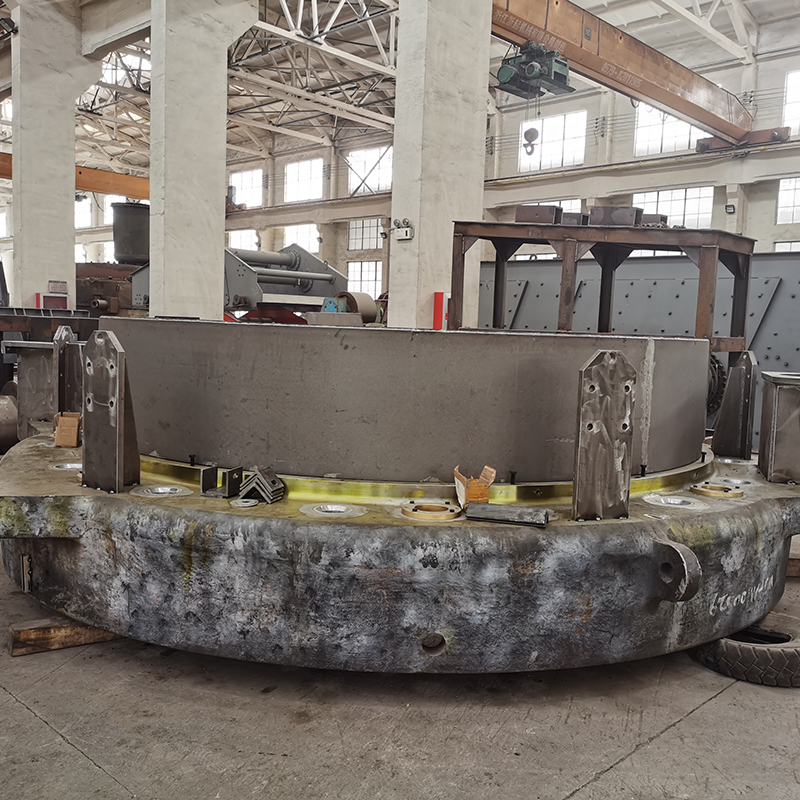With a focus on optimizing efficiency and portability, Cox Construction has deployed a new and customized Elrus 3054 jaw crusher that’s assisted by an electric mini excavator.
In June, the new jaw crusher was put into service at the Nelson Aggregate – Oneida quarry near Hagersville, Ontario. Crusher Granite

As the primary crusher for the aggregate operation, the Elrus 3054 jaw crusher is equipped with a 51-inch (1.3 metre) by 22-foot (6.7 metre) Simplicity grizzly feeder on a five-axle carrier.
The plant’s chassis was fabricated by Masaba Canada.
“We chose those components because we wanted to get a new jaw crusher that was a little more robust than the one we previously had. And we wanted to continue to be able to use an automatic toggle,” said Regan Cox, President of Cox Construction.
The automatic toggle allows quick adjustments of the jaw, boosting efficiency for the crusher.
“It just takes seconds as opposed to minutes. It’s much more efficient,” Cox said
A pair of Cedarapids cone crushers, a MVP380 and MVP380x, serve as the secondary and tertiary crushers.
Another benefit of the plant design is its portability. Weighing about 80 tonnes, Cox Construction can move the plant with a single trip permit.
“It can move legally as one load because it has five axles underneath it and we’ve built it so that it can move very quickly to any spot,” Cox said.
Typically, moving a similar 3054 build would require multiple trips, as well as a crane to remove the hopper and feeder.
“The issue is you need the right journeyman to be able to do that and put it back together properly,” Cox said. “If you don’t, then you’re in a whole lot of trouble.”
The crushing equipment on site is electric and powered by a 900-kilowatt Caterpillar genset.
“We’ve chosen to put a large single diesel engine that makes all the electricity and then we just use cords out to each of those to service the motors,” Cox said.
To tackle oversize that may find its way into the jaw crusher, Cox Construction is using a Volvo ECR 25 electric mini excavator equipped with a hydraulic hammer to break rock that impedes the crushing chamber.
“We thought this would be a good application for it because we generate power for all the crushing equipment. So, it’s not going to be a hardship to be able to recharge it,” Cox said.
The mini excavator is used infrequently in 15-minute bursts, meaning recharging is rarely required.
“It looks like we’re going to go two weeks without having to charge it because we’re not breaking a lot of oversize,” Cox said.
The 24 hp ECR 25 features a 2,700 kg operating weight, a maximum dig depth of nearly 3 metres and a hydraulic flow of 58 litres per minute. At the quarry, the battery powered mini excavator is reducing the typical amount of maintenance required to keep the machine running.
“It’s one less engine to deal with, one less oil change to deal with and there’s no filters to deal with on the engine side,” Cox said.
“It’s also not the best of locations for a diesel engine, either. When you’re on top of a rock crusher that’s creating nothing but dust all day long.”
To further reduce maintenance requirements, Cox designed a static foundation that sits next to the crusher. Previously, the mini excavator was stationed on the crusher platform, where vibration would take its toll on the machine.
“It just shook enough that it was constant maintenance,” Cox said. “So, we had to get it static so that we had a place to put it and not have it fall apart.”
Cox Construction is now in its 77th year in business. In 1946, Russel Cox (Regan’s father) began his career in road construction. He was 20 years old and was determined to establish his own company. On the advice of his mother, he and a partner bought a used crusher and set up operations in Hillsburgh, Ontario.
The following year, Cox Construction was founded with the purchase of a Cedar Rapids crushing plant. By the 1950s, Cox Construction had established its base in Guelph, Ontario, with a truck, tractor, semi-trailer and rope shovel. An asphalt plant was added to the fleet and the paving of gravel roads and driveways began. The addition of a gravel pit provided local aggregate for crushing and asphalt jobs.
Throughout the years, Cox Construction strives to stay at the forefront of advancements in heavy equipment, developing and integrating new techniques throughout its history.
Russel Cox, now 98-years-old, recently visited the new crushing setup to see the Elrus 3054 and the electric excavator in action.

Frame Wall “It was a big deal for him to be able to see it. He’s done an awful lot of customizing of our aggregate equipment over the years,” Regan said.